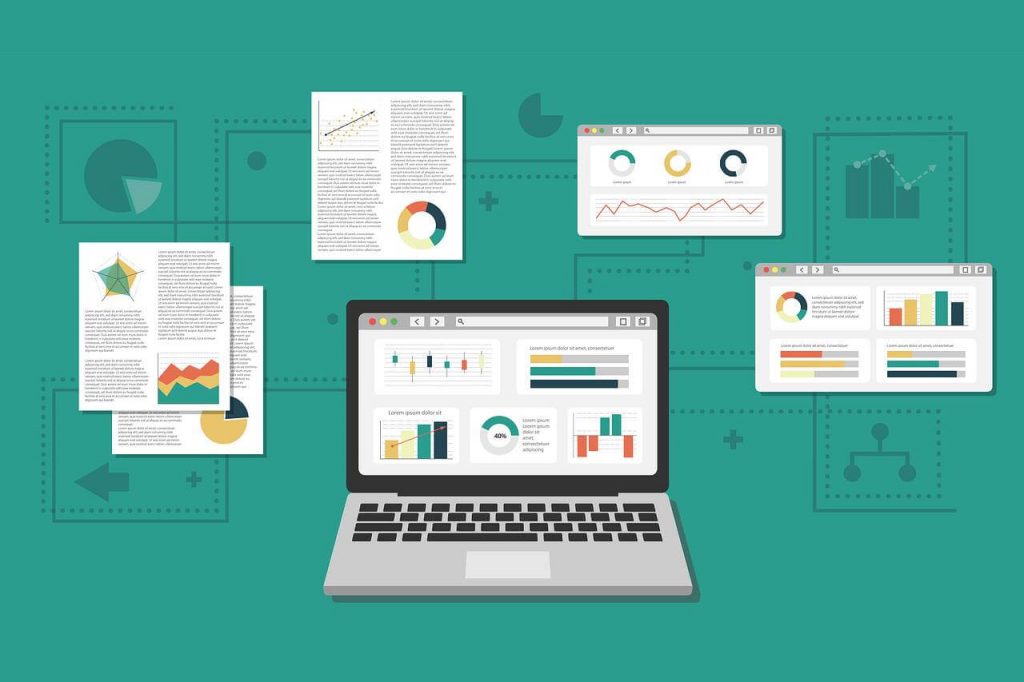Tableau vs Power BI vs MS Excel
Business intelligence (BI) combines business analytics, data analytics, data visualization, and best practices to help companies make more data-driven decisions that can help them in generating more revenue.
BI Analysts can leverage BI to provide performance and competitor analysis to make the organization run smoother and more efficiently. Analysts can also more easily spot market trends to increase sales or revenue. Used effectively, the right data can help with anything within the organization.
To start discovering insights from your data, you need a business intelligence tool and a data source. There are various BI tools available in the market. Out of these tools, the most well-known BI tools is MS Excel that organizations around the world are using for more than 20 years.
A few other most popular BI tools are Microsoft Power BI and Tableau.
In this article, we’ll discuss the similarities and differences among all the three tools and which one has thee most potential according to career growth.
You’re reading the article, Tableau vs Power BI vs MS Excel.
If you want to learn more about the business intelligence, you can explore our article:
What Is Business Intelligence & How Can It Help In Amazing Career Growth?
MS Excel Benefits & Disdvantages
Let us first discuss about the capabilities and properties of MS Excel and how it can be your goto tool for data reporting and business intelligence.
Launched in 1985 by Microsoft, Excel is one of the most popular and favorite tools for companies to manage their data. There are rows and columns in the Excel sheet and you can use mathematical formulae to perform the calculations.
You’re reading the article, Tableau vs Power BI vs MS Excel.
You can even use MS Excel as a data visualization tool and create appealing visual graphics like Pi chart, Bar chart, Pivot tables, Images, and drawings. Before the trend of data science, almost all the companies in the world were using Excel spreadsheets to store and manage all their data regarding sales, operations, marketing, business growth, etc.
With the rise of advanced Excel, new doors were opened and the scope of professionals with Advanced Excel skills has increased enormously.
Besides so much qualities MS Excel has, it definitely has many limitations that provoked companies to shift to more advanced BI tools like Tableau and Power BI.
You’re reading the article, Tableau vs Power BI vs MS Excel.
Here are a few disadvantages of MS Excel that caused companies to shift their BI needs to advanced tools like Tableau or Power BI:
- One spreadsheet cannot hold more than 10,48,576 rows.
- One spreadsheet cannot have more than 16,384 columns.
- It is a versatile software but is not open-source. Its license comes under the MS office.
- You cannot create external data connections in MS Excel.
- Advanced chart features are not supported in Excel sheet.
Due to above mentioned and many more reasons that are not mentioned here, companies looked out for more advanced tools for data reporting and visualization. To fulfill the user’s needs, a California USA based company released a tool named Tableau.
To compete with Tableau, Microsoft launched its own advanced tool named Power Business Intelligence (Power BI) that become hugely popular among the BI users around the globe.
You’re reading the article, Tableau vs Power BI vs MS Excel.
Tableau vs Power BI
If you do a comparison between the BI and data reporting tools Tableau va Power BI, you must consider these factors:
- Tableau deploys MDX for measures and dimensions while Power BI uses DAX for calculating and measuring columns.
- Tableau platform is known for its data visualization functionality whereas Power BI offers numerous data points to offer data visualization.
- Tableau BI can handle a huge volume of data with better performance while Power BI can handle a limited volume of data.
- Tableau works best when there is a vast data in the cloud but Power Bl doesn’t work better with a massive amount of data.
- Tableau is used by analysts and experienced-users mostly use it for their analytics purposes and Power BI is used by both naive and experienced users.
- Tableau is a little difficult whereas Power BI interface is very easy to learn.
To meet the demand of its users, Microsoft is continuously updating the Power BI to make it better from Tableau and they have succeded in it by far.
You’re reading the article, Tableau vs Power BI vs MS Excel.
Read a detailed comparison here: Tableau vs Power BI
If you’re willing to pursue your career as a BI analyst and want to learn Power BI, you can explore this amazing industry-led certification program by Console Flare:
Masters in Data Science With Power BI Certification Program
Hope you liked reading the article, Tableau vs Power BI vs MS Excel. Please share your thoughts in the comments section below.
In this video by Edureka, you can understand the differences between Tableau and Power BI.
For more such articles, follow our LinkedIn Page.

